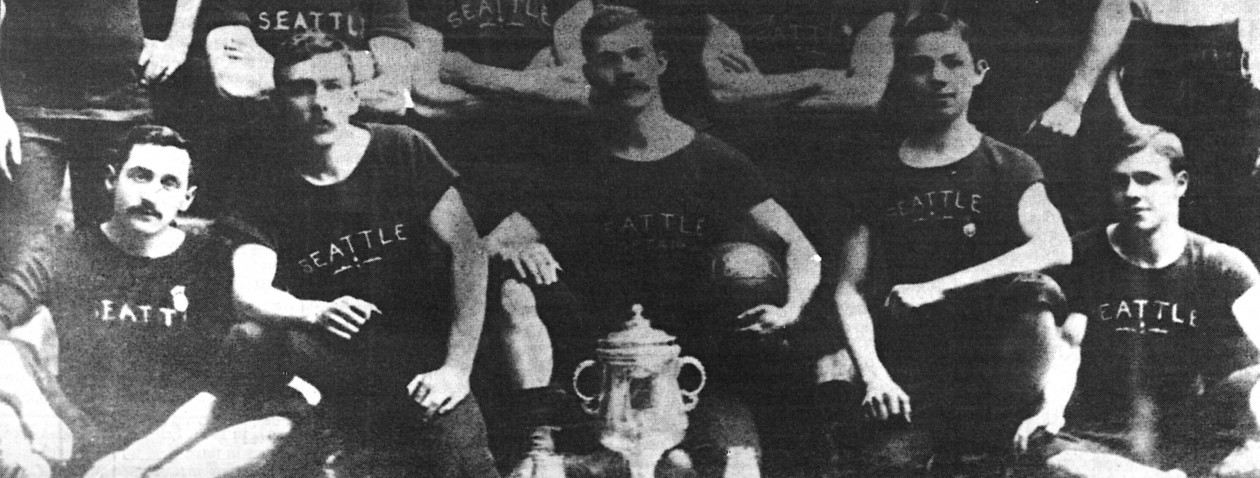This week he returns, and the occasion provides an opportunity to share what Hudson was all about and explain why he was, aIong with Mike England, an unanimous selection to the NASL Sounders All-Time XI.
Few had witnessed anyone quite like him. Initially, fans may have experienced some culture shock as he carved defenses to pieces not with pickaxe but a paring knife. Short passes to keep possession at first, then a ball dissecting the defense into bits.

It certainly happened here. The first five years of the Sounders had featured varying degrees of direct football. When Hudson arrived for a record fee from Arsenal in ’79, it was akin to changing the tune from a piano duet to a full-on symphonic opus. And there’s no question who wielded the wand in this orchestra.
In a 1981 interview, after an adjustment period and even winning an NASL record 25 matches the previous season, Hudson said his approach of short passing–the forerunner to tika-taka, if you will–as opposed to long ball nevertheless met with resistance.
“Some people still don’t understand it,” said Hudson. “There are even people on our own team who don’t believe in it.”
Bob Robertson, voice of the Sounders for much of their NASL run, could see the look of confusion on faces. “Our style was to run like hell and play it over the top. Hudson’s style was to go get the ball from the back, stop and put his foot on it and look for the next place to pass it.”
Hudson was very much the quarterback, the orchestrator. Not just in Seattle, but Chelsea, Stoke and England beforehand. Once accustomed to possession-oriented method, clubs soon found success.

Chelsea won its first European trophy with Hudson at the controls. England was the first side to defeat 1974 World Cup holders West Germany. At Stoke’s Boothen End, when he worked magic amid the muck, they sang that ‘Alan Hudson Walks on Water.’ Seattle won two division titles and reached the 1982 final.
“He was a superior player, a superior athlete who played here for four seasons, educating everyone, young and old, on the finer points of the game,” recalls Alan Hinton, who first named him captain, then assistant coach.
Hudson then is comparable to Xavi, Iniesta and Fabregas now, claims Hinton. “His touch on the ball, his vision, his energy: It must’ve been a joy to play with him. I know it was easy to coach him because he didn’t give the ball away.”
Far from being solely a finesse player, Hudson could tackle and run and run and run. His feints and close control enabled him to beat defenders on the dribble. He had a head for the game, and he also displayed a big heart, literally and figuratively.
Huddy enjoyed the nightlife. His after-hours exploits are legendary, staying out all night, yet also being the first to arrive at morning training. Much like a wrestler making weight, he regularly wore extra layers of training gear to promote more sweat. By midweek Hinton says Hudson was refreshed and ready for a match.

“By game night, he’d come to the stadium dressed in great suit with great shoes, looking like a million dollars,” he recalls, “and then he played like it.”
Hudson had supreme confidence in his abilities and he sought to infuse belief in his teammates. He was also aware of everyone around him, be it on the field or in the locker room.
Don Greiert was the Sounders trainer. He remembers a special needs young man known as Ted who shagged balls and laundered towels at training. Huddy often engaged in conversations with Ted. After earning a place at Soccer Bowl in San Diego, he took a collection from teammates to buy Ted a ticket to fly south, his first air travel. The loss to the Cosmos hit Ted the hardest.
“He was crying and upset,” Greiert says. “Huddy saw this and went over, told him it was OK and gave him a towel to wipe his glasses and nose, and a hug. A class guy.”

Many of those Hudson teammates stayed behind and teach the game today. Sounders alumni hold key coaching positions at most of the area’s premier youth clubs. Then there are those who simply studied Hudson’s method from the stands.
“His personal ability to control the rhythm and tempo of a professional game astounded me,” says Chuck Sekyra, whose Seattle Pacific women’s program has won one national championship. He is the proud owner of a framed Hudson jersey.
“He had an effect on the game in a manner I had never seen or thought of before, at my age,” he says. “I thought he was some sort of genius, who always had a plan, and I could not take my eyes off him, and it greatly affected how I watch and enjoy the game of soccer.”
Naturally gifted in technique, Hudson’s mind made him all the more brilliant in the way he applied his trade. Those around the top level often cite the speed of the play, the speed of mentally processing the game that sets players apart. Hudson, like Johan Cruyff, often appeared to have an intricate movement mapped out four exchanges in advance.
”He was ahead of the game in terms of his knowledge,” notes Hinton. Neither fans nor some players “were used to a player playing all these triangles, give-and-goes and flicks, supporting players.”
There simply was no one else like him in Seattle, before or since.
“Most older Sounders fans will probably agree that Hudson was the most complete soccer talent ever to play for the Sounders,” Hinton says. “I witnessed first hand his complete interest in helping the young Americans on our roster.
“He helped grow the game, it was an honor to see him play and it’s quite a compliment that people still talk about him to this day,” concludes Hinton. “No question, Alan has left a lifelong impression on all of us.”
